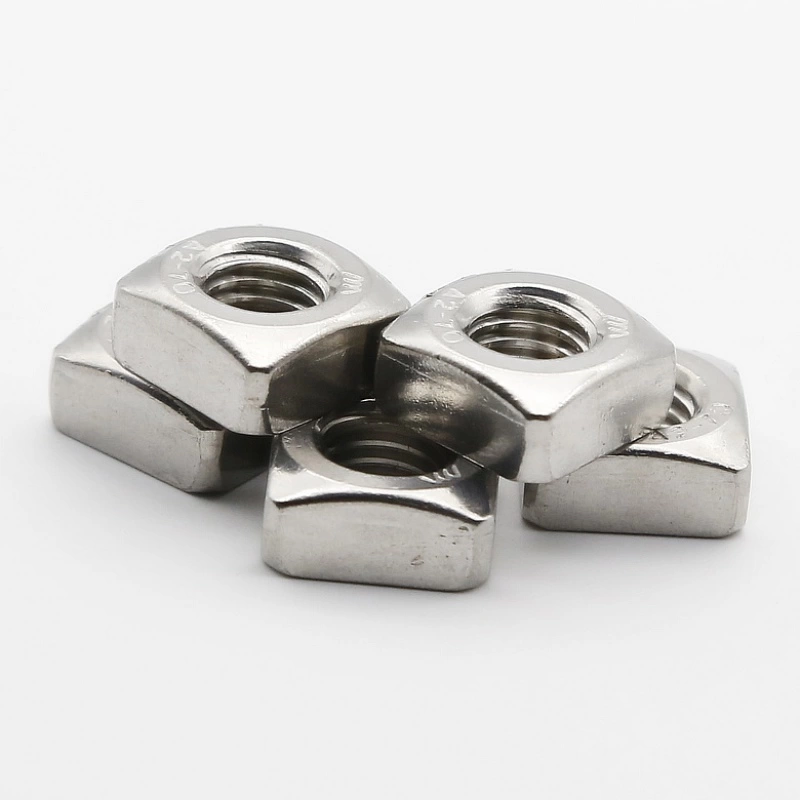

m12 1.25 flange nut
Th12 . 10, 2024 04:58 Back to list
m12 1.25 flange nut
Understanding the M12 1.25 Flange Nut Features, Applications, and Benefits
In the world of mechanical engineering and construction, fasteners are crucial components that hold structures together. Among these fasteners, nuts play a vital role in securing bolts and screws. One such important type is the M12 1.25 flange nut. This article delves into the features, applications, and benefits of the M12 1.25 flange nut, providing a comprehensive overview for engineers, builders, and DIY enthusiasts alike.
What is an M12 1.25 Flange Nut?
The designation “M12” refers to the nominal diameter of the nut, which is 12 millimeters. The “1.25” indicates the thread pitch, meaning there is a distance of 1.25 millimeters between the threads. The flange aspect refers to the wider circular base of the nut, which provides increased surface area, making it effective for distributing loads and reducing the risk of damage to the materials being fastened.
Flange nuts are designed to accommodate different stress and strain scenarios. The added flange at the bottom of the nut helps in mitigating the effects of vibrations, making them suitable for high-stress applications. Furthermore, they provide a built-in washer effect, eliminating the need for an external washer in many cases.
Key Features of the M12 1.25 Flange Nut
1. Thread Design The M12 1.25 flange nut features metric coarse threads, allowing for quick assembly and disassembly. This is especially useful in applications where regular maintenance is required.
2. Material Composition These nuts are commonly made from various materials, including stainless steel, carbon steel, and alloy steel. The choice of material affects strength, corrosion resistance, and overall durability.
3. Flange Design The flange provides a larger bearing surface, allowing for more even distribution of load and reducing the risk of loosening due to vibration. This feature is particularly beneficial in applications involving machinery or vehicular components where vibrations are prevalent.
4. Locking Features Some M12 1.25 flange nuts come with added locking features, such as nylon inserts or serrated edges, that help prevent loosening over time.
5. Standard Dimensions The standardized dimensions of the M12 1.25 flange nut make it compatible with various industry practices and common bolts, enhancing its versatility.
Applications of the M12 1.25 Flange Nut
The M12 1.25 flange nut is utilized in a myriad of applications across different industries
m12 1.25 flange nut

- Automotive Industry In vehicles, these nuts are frequently used to secure components such as suspension systems, engine mounts, and chassis frames. Their ability to withstand high stress and vibration makes them ideal for automotive applications.
- Construction In construction projects, flange nuts are used to secure steel beams and plates. The wider surface area helps to distribute load, making them an excellent choice for structural applications.
- Heavy Machinery In the manufacturing of heavy machinery, where machinery experiences significant vibrations, the M12 1.25 flange nut is commonly used to ensure that parts remain securely fastened during operation.
- Home and DIY Projects For home improvement tasks, such as furniture assembly or structural repairs, these nuts provide a robust fastening solution that can withstand regular use.
Benefits of Using M12 1.25 Flange Nuts
1. Enhanced Load Distribution The flange design helps to distribute the load evenly, reducing shear stress on the fastening points and minimizing the risk of failure.
2. Improved Vibration Resistance The added surface area and locking mechanisms significantly enhance resistance to vibrations, ensuring that fasteners remain secure over time.
3. Ease of Installation The design of the M12 1.25 flange nut allows for easier handling and installation, reducing the time and effort required during assembly.
4. Cost-Effectiveness Given their durability and reliability, flange nuts can often be reused, making them a cost-effective solution for both industrial and individual use.
5. Versatility With a standardized design, the M12 1.25 flange nut can be used in a wide range of applications, making it a staple in the fastener market.
Conclusion
The M12 1.25 flange nut is an indispensable component in the toolkit of engineers and builders. With its robust design, versatility, and reliability, it serves as a solution for numerous fastening needs across various industries. Whether you're working on automotive projects, heavy machinery, or home renovations, understanding the features, applications, and benefits of the M12 1.25 flange nut can help you make informed decisions and ensure the integrity of your assemblies.
Latest news
-
Hot Dip Galvanized Bolts-About LongZe|High Strength, Corrosion Resistance
NewsJul.30,2025
-
High-Strength Hot Dip Galvanized Bolts - Hebei Longze | Corrosion Resistance, Customization
NewsJul.30,2025
-
Hot Dip Galvanized Bolts-Hebei Longze|Corrosion Resistance&High Strength
NewsJul.30,2025
-
High-Strength Hot-Dip Galvanized Bolts-Hebei Longze|Corrosion Resistance&High Strength
NewsJul.30,2025
-
Hot Dip Galvanized Bolts-Hebei Longze|Corrosion Resistance&High Strength
NewsJul.30,2025
-
Hot Dip Galvanized Bolts - Hebei Longze | Corrosion Resistance, High Strength
NewsJul.30,2025

